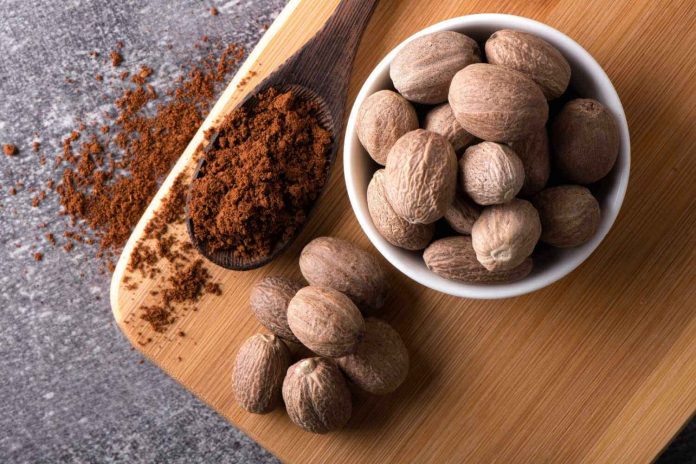Brazil and coffee go hand in hand. It enjoys worldwide renown and is responsible for 36% of the world’s total coffee supply. You can buy Arabica coffee wholesale on many websites. Brazil also enjoys fame for producing beans that apply to pallets such as espresso and dark roasts.
Brazil’s Coffee Prowess
French explorers brought coffee for the first time in the 18th century, and since 1840, Brazil has been a behemoth in the coffee business. The taste of coffee made from Brazilian green coffee beans can be called mellow because of the low acidity. It also has a tinge of a bittersweet chocolate taste and nuts. This coffee may not be intense as they are grown in areas of low elevation. As a result, Brazilian beans have dark roasts. On top of that, these beans are also pocket-friendly.
Is Brazilian Coffee Complex?
No, it is not. Brazilian coffee does not go over the top. The taste is bitter, and the country does not go for the overkill by mixing too many ingredients in the broth. You can roast the beans lighter to make espressos.
There are three methods by which coffee gets processed, the dry process is the natural one, pulped natural, and the semi-washed method, which lies at a crossroads between the wet process and the dry process. The coffee made from the natural process has a chocolate and earthy taste, sometimes fruity. The pulped natural process involves the removal of the coffee cherry and the parchment, with the majority of the mucilage attached. This process also includes sun-drying the beans on a patio or a raised drying bed.
Finally, the semi-washed process involves the removal of the mucilage with a machine. The flavor can be close to the pulped natural process. It can also be similar to the wet-processed method.
Roasting Brazilian Coffee Beans
Brazilian coffee beans require a lower initial temperature for roasting. If the beans get overly roasted, the flavor can get ashy. It is common practice to let the beans rest after roasting. Most high-quality beans come from the Sul de Minas: Carmo de Minas, Carmo de Minas. Cerrado, a place many Brazilians may not recognize, is similar to a savanna. It is dry and flat and in the state of Minas Gerais. A lot of coffee gets produced there.
Quality Of Brazilian Coffee
It is not common for people who are not in the thick of the coffee business are likely to understand what goes into packaging the product, the amount of effort it takes to dry them, and the other processes before being given the go-ahead to hit the market. Traders are only interested in the money they can churn out from sales. It is a fact everywhere.
As much as Brazilians can make some of the most coveted coffee, the question “is this coffee good?” has answers that will depend from person to person. Retailers cannot even barely even begin to answer such a question. It is a question that undoubtedly has a lot of layers and can be a boon or bane for the sales and reputation of Brazil as a coffee giant. Of course, the people involved in the production of the coffee leave no stone unturned but it has to be accepted that there are people out there who may prefer a different type of coffee, and sometimes retailers, on their quest to make their pockets deep, may simply choose to ignore this fact.
Brazil is a country that produces relatively few containers of coffee that can cup from 84-87 points and a huge quantity of coffee below the 80-point mark. This coffee below the 80-point mark is commercial coffee.
Brazil’s Coffee Statistics
Sellers looking to sell Arabica coffee wholesale can make a huge profit as Brazil constitutes about 70% of its production. It is the most commonly consumed coffee in the world because its taste is sweet and also tends to be less acidic. This also makes the coffee more delicate. They are cultivated in areas of high altitude where there is a lot of rainfall.
The Arabica coffee species can lead to ailments so growing a large quantity of the same may prove to be a daunting task. This risk gives its price a bump in the market but they are still savored despite the increase in its price.
Some Facts About Brazil’s Coffee Are As Follows:
- Coffee prices enjoyed stability in January 2022: Coffee prices increased because of the COVID-19-induced lockdown in the year 2021 but as the smoke of the lockdown began to clear up, the price of coffee finally reached a pleasant standstill in the second half of 2022.
- Russian-Ukrainian War May Dent Coffee Sales In The United States: It is feared that the conflict between Russia and Ukraine and growing sanctions with the former may cause the demand for coffee to take a dip. This can reduce the cost of the beans which can be detrimental to Brazil.
Conclusion
Brazil green coffee beans enjoy mild and full-body properties. They are light in aroma and are high-quality Arabica beans. It is the most bang for the buck product and is highlighted by a creamy, soft, and smooth aroma with a hint of nuts and chocolates.



